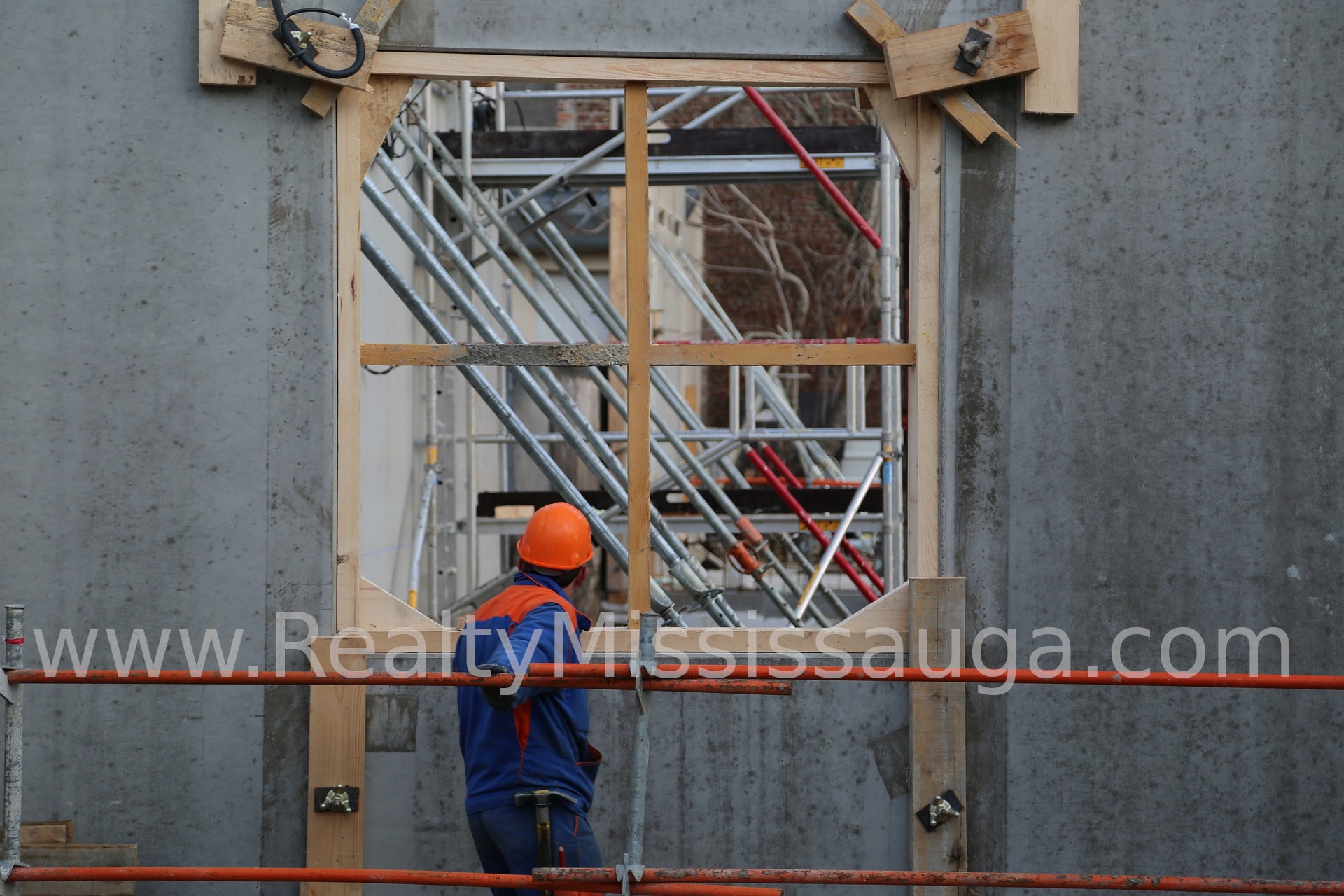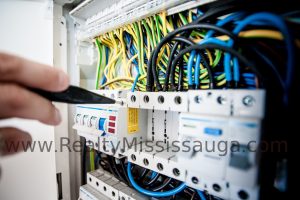Pre-Construction Home In Mississauga: As the urban landscape of Mississauga continues to evolve, the allure of pre-construction homes is more enticing than ever. The prospect of crafting a personalized haven from the ground up, coupled with potential investment gains, makes the journey to find the perfect pre-construction home an exciting one.
In this guide, we will unravel the intricacies of this process, empowering you with the knowledge needed to embark on this rewarding venture in the heart of the Greater Toronto Area.
Section 1: Understanding the Appeal of Pre-Construction Homes:
Pre-construction homes represent a canvas of possibilities for prospective homeowners. The ability to customize your living space and stay on the cutting edge of design trends is an unparalleled advantage. Beyond the aesthetics, the financial benefits of purchasing pre-construction properties are noteworthy, with the potential for significant appreciation in value over time.
Section 2: Delving into Mississauga’s Real Estate Landscape:
Before embarking on your pre-construction journey, it’s essential to familiarize yourself with the diverse neighborhoods and upcoming developments in Mississauga. Understanding the city’s growth patterns and economic dynamics will provide valuable insights into the potential long-term value of your investment.
Section 3: Choosing Reputable Developers:
The developer you choose can make or break your pre-construction experience. Researching reputable developers with a proven track record is a crucial step. Attend open houses, explore past projects, and seek feedback from current homeowners to gauge the developer’s reliability and commitment to quality. Trustworthy developers not only deliver on promises but contribute to the overall desirability of your future home.
Section 4: Leveraging the Expertise of a Skilled Realtor:
Navigating the complexities of the pre-construction market is made significantly easier with the guidance of a seasoned realtor. Collaborate with a professional who specializes in Mississauga’s real estate scene and possesses experience in handling pre-construction transactions. A skilled realtor can offer insights into upcoming developments, negotiate favorable terms, and streamline the purchasing process.
Section 5: Mastering the Financial Aspects:
Understanding the financial implications of a pre-construction purchase is paramount. Prepare for initial deposits and installment payments tied to construction milestones. Explore financing options, including mortgage pre-approvals, and factor in additional costs such as closing fees and taxes. A comprehensive grasp of the financial landscape ensures a smooth and transparent transaction.
Section 6: Safeguarding Your Investment:
Once you’ve chosen your pre-construction gem, protecting your investment is crucial. Scrutinize the purchase agreement, ensuring that all agreed-upon customizations and timelines are clearly outlined. Stay actively involved in the construction progress, maintaining open communication with the developer to address any concerns promptly.
Conclusion:
Embarking on the quest for a pre-construction home in Mississauga is an adventure laden with promise. Armed with knowledge, an understanding of the local real estate scene, and the support of experienced professionals, you’re poised to turn your dream home into a tangible reality. Remember, the journey is as important as the destination, and each step brings you closer to a home that not only suits your lifestyle but also represents a sound investment in the flourishing landscape of Mississauga.
FAQs:
Q1. Why should I consider a pre-construction home in Mississauga?
Choosing a pre-construction home in Mississauga offers the unique opportunity to customize your living space and stay ahead of design trends. Additionally, these properties often come at a lower initial cost, and their value tends to appreciate over time, making them a potentially lucrative investment.
Q2. How can I research the real estate landscape in Mississauga?
To research the real estate landscape in Mississauga, explore different neighborhoods, amenities, and upcoming developments. Familiarize yourself with the city’s growth patterns, economic indicators, and existing property values. This knowledge will help you make informed decisions about where and when to invest.
Q3. What should I look for in a reputable developer?
A reputable developer should have a proven track record of delivering high-quality projects on time. Attend open houses, examine their past developments, and seek feedback from current homeowners. A reliable developer contributes not only to the construction process but also enhances the overall value and desirability of your investment.
Q4. How can a skilled realtor assist me in finding a pre-construction home?
A skilled realtor specializing in Mississauga’s real estate market can provide valuable insights into upcoming developments, negotiate favorable terms, and guide you through the pre-construction purchasing process. Their experience and knowledge will streamline the journey, ensuring a smoother transaction.
Q5. What financial aspects should I consider when purchasing a pre-construction home?
Be prepared for initial deposits and milestone payments tied to construction phases. Explore financing options, including mortgage pre-approvals, and factor in additional costs such as closing fees and taxes. Understanding the financial aspects thoroughly will help you plan and budget effectively.
Q6. How can I safeguard my investment in a pre-construction home?
To safeguard your investment, carefully review the purchase agreement, ensuring that all customization options and timelines are clearly outlined. Stay actively involved in the construction progress, maintain open communication with the developer, and address any concerns promptly. This proactive approach will help protect your investment.
Q7. Are there potential risks associated with pre-construction homes?
While pre-construction homes offer various benefits, there are potential risks such as construction delays, unforeseen changes in the market, or shifts in the economy. Conduct thorough research, choose a reputable developer, and work with professionals to mitigate these risks and make informed decisions.
Q8. How can I stay informed about the construction progress of my pre-construction home?
Developers typically provide regular updates on the construction progress. Stay in touch with your developer, attend any scheduled progress meetings, and inquire about communication channels. Many developers use online platforms or apps to keep buyers informed about milestones and construction updates.
Q9. Can I sell my pre-construction home before it’s completed?
In most cases, you can sell your pre-construction home before completion. However, check the terms of your purchase agreement and consult with your developer. Keep in mind that selling before completion may have financial implications, and understanding the resale process is crucial.
Q10. How can I stay up-to-date on pre-construction opportunities in Mississauga?
Stay informed about pre-construction opportunities by regularly checking real estate websites, attending property expos and events, and subscribing to newsletters from reputable developers and real estate agencies. Additionally, working closely with a knowledgeable realtor can ensure you receive timely information on the latest pre-construction projects in Mississauga.
How do you Find a Pre-Construction Home in Mississauga: A pre-construction home may be perfect for many homebuyers. Many homebuyers prefer to design new homes with personalized interior design accents. There is also the bonus of having a home warranty and low rent restrictions.
However, purchasing a pre-construction home works differently. It is important to understand the process of buying a press house, so the process runs smoothly, and you avoid any surprises. This guide will focus on purchasing pre-construction condo apartments as it has some additional steps:
Once you finalize a realistic budget and you have a mortgage broker, after you qualify for the mortgage, you are almost ready to start searching for a condo. First of all, you will want to do the following:
- Find out your requirements for a condo.
- List the necessary facilities in your neighborhood.
- Find a suitable real estate agent.
Define the requirements of your home
When defining your needs, you should think about what you want from your home rather than how you want to fulfill them or the potential bonus features you need.
Different from what was difficult before, but it is necessary because you do not want to pay for features you do not need.
Requirements are features that are structural and difficult to add to renovation. These include features such as the number of bedrooms in your condo. The list we provide is just an example, and you should make your list and prioritize the requirements.
Find a Great Real Estate Agent
The key to finding your ideal home is in finding a great local real estate agent who can understand, value, and relate to your purchasing needs. Mortgage Sandbox developed the Match Finder app to match Canadians with shared interests and complementary work styles with local and pre-screen estate agents. We believe that aligned values lead to better working relationships and a more successful condo buying experience.
Make a list of favorite developers
You often get what you pay for, so searching for the cheapest property is not the best route. First, work with your real estate agent to create a list of favorite developers. You want to establish them well and seek positive feedback online. You can dismantle their buildings to understand the quality of their buildings and review the corporation minutes directly for these buildings to see if there are any structural issues after their completion.
Visit presentation centers
Ask your realtor to look at developments that have recently been approved by the city to reopen. They may not have a presentation center yet, but they will soon be marketing their homes, and will not be taken over by any other buyer.
Before visiting the presentation center, ask your realtor to provide you with marketing materials and available floor plans. Ask your agent how the location of the construction site will meet the needs of your neighbourhood. Know the detailed and complete information about How do you Find a Pre-Construction Home in Mississauga.
Also, ask the agent to highlight how the units in this development meet your needs and what elements need to be addressed by the developer’s representatives in the presentation center.
Making an offer
It may take you a few months to see the houses where you have got a good deal. You must have a sense of value in a condo before walking in the door. Remember, the list price is only a reference point, and often, you can negotiate for cash back, move-in allowances, or additional parking spots and storage locker at no additional cost.
here are some tips:
- See how long the presentation center has been open – if it is long, there may be room to make an offer below the list price.
- Research Presentation Center You want to travel and are planning a route so that you move north to south or east to west instead of breaking the city.
- Wear a comfy casual but work-appropriate outfit. Think business casual or jeans day. You want to take the developer realtor seriously.
- You can negotiate a deposit. This is especially important if you plan to obtain financing for more than 80% of the value of the home.
- Monthly condo maintenance fees in new buildings are usually set very low by the developer to make the homes more attractive. As a rule of thumb, you should expect that in 5 years, your monthly straight fees will climb to at least $ 0.40 per square foot.
- Ask about expected closing costs.
Deposit structure
Pre-construction condos normally require a deposit of at least 20%. But, it seems that when compared to buying this used or resale house, in the end, your deposit will be the investment in your house. The full deposit is usually divided into small amounts spread over a few months. This payment schedule is called the deposit structure.
A typical deposit structure for a condo that costs $ 500,000 with a 20% deposit:
- $ 5,000 with offer
- $ 20,000 within 30 days (5% initial deposit of purchase price)
- $ 25,000 (5%) within 60 to 90 days
- $ 25,000 (5%) within 90 to 180 days
- $ 25,000 in occupancy (5%)
When a presentation center opens for the first time, a deposit is usually required for condos sold at the beginning of a project. Once the developer has enough units to cover the cost of construction, they feel more comfortable resting the deposited structure.
Often, deposit payments are expected in the form of pre-written checks held by the developer and deposited on pre-agreed dates.
As development is completed, the deposit structure becomes more negotiable, and you may be able to increase or decrease your deposit payment.
Closing costs
Closing costs are additional expenses that you must pay at the time of payment of one payment and one-day inspection fee, legal fees, land transfer tax, CMHC insurance, and sales tax.
We recommend that buyers set aside 1.5 – 4% of the buying price of their home to cover their closing prices. When you buy a pre-construction condo unit, however, the number may be even higher.
When you purchase a new condo, you may be subject to additional fees, including:
- Development and educational upliftment
- New Home Warranty Plan Enrollment Fee
- Utility hookup fee
- Assignment fees
- Business fees
These additional costs do not apply to every pre-construction purchase, and, in some cases, you can negotiate with the developer to pay on your behalf.
Pre-closing inspection
A pre-closing inspection occurs approximately 10 days before closing. Inspection only allows you to overcome physical deficiencies.
Pre-sale contracts usually allow developers to change materials and refine them sufficiently. Refinement, quality and model of equipment, and workmanship can be described in marketing materials, but they are not usually set out in the purchase agreement.
Also, purchase contracts have a “no warranty or representation” clause that prevents the buyer from relying on any marketing material or verbal promises made at the time of sale unless they are written into the purchase contract.
In general, you should not rely on pre-completed inspection, but instead, choose a developer with a great reputation and a solid track record.
Occupation period or interim occupation
When you buy a pre-construction condo, you may run into a situation where the builder lets you move into your unit before the rest of the building is completed, and the ownership of the house is assigned to you. Depending on your province, this time frame is known as your occupancy period or interim occupancy period.
Since the building is not finished, and you are not the owner of your unit, you do not need to initiate a mortgage payment. However, you must pay the developer an occupancy fee for each month that you live there until you take ownership.
Professional fees also allow the builder to cover the entire cost of living in your building. You can sometimes avoid occupancy fees by paying the entire purchase price with cash on the date of occupancy. To do this, you need to write it in your initial purchase contract.
Home insurance
During interim occupancy, you will need tenant insurance. However, after the final closing, you will have to cancel the tenant insurance and replace it with homemaker insurance. Be careful to ensure that you do not have differences in insurance coverage.
Know the information on home construction at https://en.wikipedia.org/wiki/Home_construction




